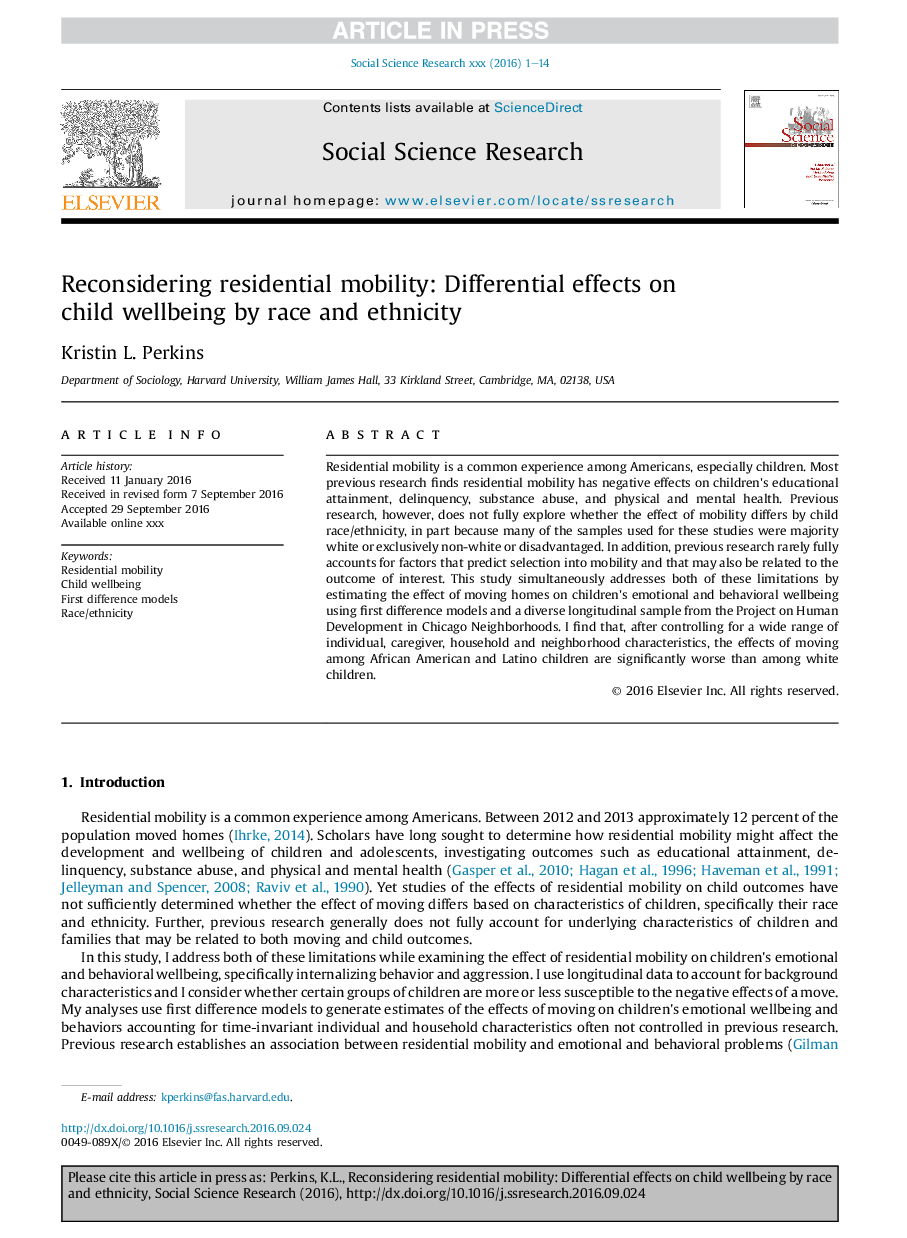ترجمه فارسی عنوان مقاله
بازخوانی تحرک مسکونی: اثرات افتراقی بر سلامت فرزندان بر اساس نژاد و قومیت
عنوان انگلیسی
Reconsidering residential mobility: Differential effects on child wellbeing by race and ethnicity
| کد مقاله | سال انتشار | تعداد صفحات مقاله انگلیسی |
|---|---|---|
| 121828 | 2017 | 14 صفحه PDF |
منبع

Publisher : Elsevier - Science Direct (الزویر - ساینس دایرکت)
Journal : Social Science Research, Volume 63, March 2017, Pages 124-137
ترجمه کلمات کلیدی
تحرک مسکونی، سلامتی کودک، مدل های مختلف اول، مسابقه / قومیت،
کلمات کلیدی انگلیسی
Residential mobility; Child wellbeing; First difference models; Race/ethnicity;
ترجمه چکیده
تحرک مسکونی یک تجربه مشترک در میان آمریکایی ها، به ویژه کودکان است. بیشتر تحقیقات قبلی نشان می دهد که تحرک مسکونی تاثیر منفی بر پیشرفت تحصیلی کودکان، بزهکاری، سوء مصرف مواد و سلامت جسمی و روانی دارد. با این حال، تحقیق قبلی به طور کامل نمی تواند بررسی کند که آیا اثر تحرک متفاوت با نژاد و نژاد کودک است یا خیر، بخشی از آنست که بسیاری از نمونه هایی که برای این مطالعات مورد استفاده قرار می گیرند اکثریت سفید یا منحصرا غیر سفید یا محروم هستند. علاوه بر این، تحقیقات قبلی به ندرت به عوامل متعددی که پیش بینی انتخاب را به تحرک و همچنین ممکن است مربوط به نتیجه علاقه است. این مطالعه به طور همزمان هر دو این محدودیت ها را با برآورد تاثیر خانه های متحرک بر سلامت عاطفی و رفتاری کودکان با استفاده از مدل های مختلف اولویت و یک نمونه طولی متنوع از پروژه توسعه انسانی در محله های شیکاگو، مورد توجه قرار می دهد. من متوجه شدم که پس از کنترل طیف گسترده ای از ویژگی های فردی، مراقب، خانواده و محله، اثرات حرکت در میان کودکان آفریقایی آمریکایی و لاتین به طور قابل توجهی بدتر از کودکان سفید پوست است.

